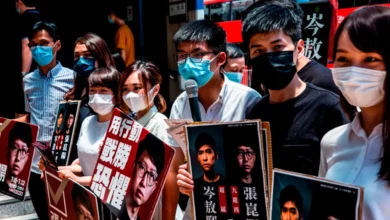Saad Eddin Ibrahim, Egyptian dissident and sociology professor at New Jersey’s Drew University, accused US President Barack Obama of being “too friendly with tyrants” in a Washington Post editorial published on Tuesday.
Focusing on the Obama administration’s cordial relations with dictatorial governments across the Middle East–and particularly with Egypt’s Mubarak regime–Ibrahim writes that the administration “thinks that strengthening ties with Mubarak will encourage Egypt to become more proactive in the Israeli-Palestinian peace process.” He notes, however, that Mubarak “has not advanced Israeli-Palestinian peace beyond what his predecessor, Anwar Sadat, accomplished in the 1970s.”
Ibrahim goes on to argue that, as a result of the green lights the regime receives from Obama, “it has reverted to wholesale imprisonment and harassment of political dissidents,” citing the government’s “crackdown on Egypt’s brave young pro-democracy bloggers” as an example of the regime’s hardening stance against political liberalization. Ibrahim decries Washington’s near silence last month when “Mubarak’s regime extended the ’emergency law’ under which it has ruled for 29 years, prohibiting even small political rallies and sending civilians to military courts.”
Highlighting “the great anticipation” generated by Obama’s Cairo speech last summer among democracy and human rights activists, Ibrahim notes sadly that, “today, Egyptians are not just disappointed, but stunned by what appears to be outright promotion of autocracy in their country.”
Ibrahim contrasts the current sad state of affairs in Egypt with the previous era of George W. Bush, during which a myriad of opposition groups–including Youth for Change, Artists for Change and Kefaya, among others–proliferated in Egypt. He accuses Obama of reverting “to Cold War policies of favoring stability and even support for ‘friendly tyrants’,” going on to ask, “Why has Obama distanced himself from his predecessor’s support for democracy promotion?”
Ibrahim is unequivocal about the role of Egypt, as the Arab world’s most populous country and regional trendsetter, in the process of democratization in the wider Middle East. According to the sociology professor, Egypt’s parliamentary and presidential elections–to be held in the coming year and a half–“could well shape the future of democracy in the Middle East’s largest country and the region itself,” asking, “What tone does President Obama want to see established in this volatile neighborhood?”
“What is needed now is a loud and clear message from the United States and the global community of democracies that the Egyptian people deserve free, fair and transparent elections,” Ibrahim adds, going on to call for a US congressional resolution to this effect. As for the region as a whole, Ibrahim envisions an “imaginative policy of tying the substantial US foreign aid to the region to political reform.”
“We must hope that the Obama administration will cease its coddling of dictators,” Ibrahim concludes.
Translated from the Arabic Edition.




